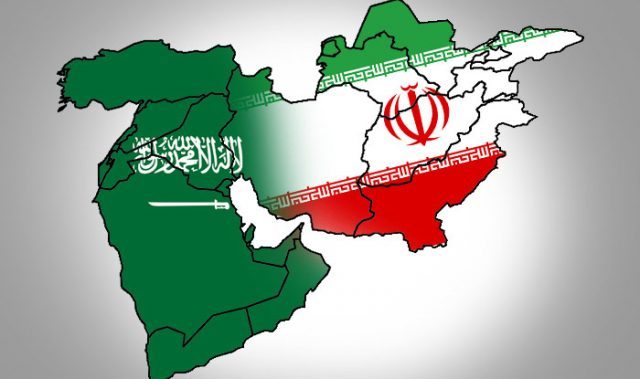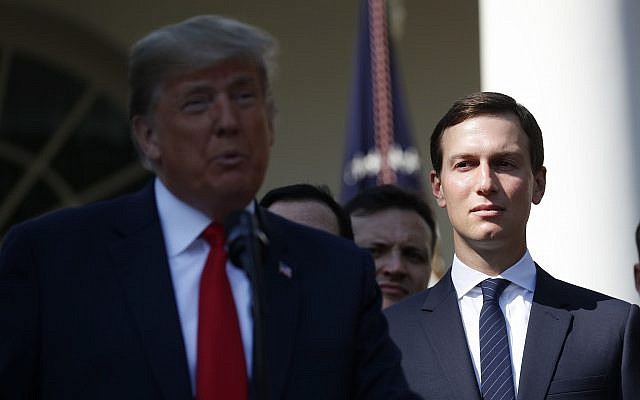News Analysis |
Javad Zarif, the foreign minister of Iran, wrote an opinion piece in the Qatar-based news agency, Al Jazeera, on Monday. Zarif advocated for laying the foundations of joint security agreements through dialogue, shared values and confidence building measures in the middle-east. Al Jazeera has been at loggerheads with Saudi Arabia and its allies since the diplomatic crisis between the Gulf Kingdom and its allies and Qatar. The op-ed by the Iranian foreign minister in Al Jazeera is a symbol of growing Iran-Qatar ties.
Al Jazeera and Qatar were accused by Saudi Arabia and other Arab allies of supporting terrorism. The Muslim brotherhood, in Qatar, has been at the center of the diplomatic crisis between Doha and Riyadh and its allies. The political and social ‘activist group’ has been banned by regimes across the middle-east. Qatar, however, has not banned it. All financial and diplomatic ties with Qatar were cut off by Saudi Arabia, Egypt and the gulf countries. In addition to that, Qatar was blockaded due to which its economy began to suffer.
Qatar, however, restored ties with Iran. After the blockade, Iran supported Qatar by sending planes full of food supplies. Former US secretary of state, Rex Tillerson, visited middle-east allies and tried to resolve the crisis but US efforts to mediate did not work.
The Crown Prince Muhammad bin Salman went to the US for his first ever visit where Trump aimed to sell weapons to the Saudi Kingdom. It is too early to say that formal ‘blocs’ have formed but it is clear where the interests of all countries in the region lie.
Javad Zarif makes a reference to the ongoing crises in the middle-east. “The world today seems like it’s facing a dead end,” he writes. “This region is gradually becoming a place that lacks minimal security and is plagued by all kinds of ethnic, national, sectarian, religious and tribal conflicts.” He also talks about US foreign policy and its role in destabilizing the region. “The external forces that have impact in this region have always favored war. They repeat cycles of war, and never give peace a chance,” he says.
‘Never give peace a chance’ may be a reference to Trump’s new cabinet picks. Both John Bolton, the new national security advisor, and Mike Pompeo, the secretary of state, are known in Washington as hawkish and pro-war. There are real concerns that the Iran nuclear deal might be in danger. Pompeo once said, while appearing on Fox News, that Trump was right in calling the nuclear deal a “disaster”.
Read more: Middle East mess expands to East Africa
Similarly, Bolton is a vocal proponent of abrogating the Joint Comprehensive Plan of Action. He called the deal “the worst act of appeasement in American history.” On another occasion, he has said, “I look forward to rolling back this disastrous deal with the world’s largest state sponsor of terrorism.” The National Iranian American Council, in a statement, said that “Donald Trump may have just effectively declared war on Iran.”
Zarif, in his piece for Al Jazeera, also says “The world today seems like it’s facing a dead end. International relations have become impervious to their historical and scientific foundations.” On Monday, the US expelled 60 Russian diplomats, 48 from the Russian embassy and 12 from the UN. Earlier, the United Kingdom expelled 23 Russian diplomats after accusing Russia of poisoning Sergei Skripal, ex-Russian spy. The European Union and Australia also followed suit and expelled Russian diplomats. In total, nearly a hundred diplomats have been expelled thus. All this occurred despite the fact that Moscow had formally offered to cooperate under the terms and conditions of the Convention on Prohibition of Chemical Weapons. Meanwhile, the investigation into the attempted assassination of Skripal is not yet complete and may take all summer, according to British Police.
Turkey has moved closer to Qatar, Iran and Russia whilst moving away from western allies. Erdogan also called Putin his ‘dear friend’ in 2016 and ties with Russia were fully restored by November, 2017, despite downing of a Russian fighter jet by Turkey in December 2015.
When Qatar was blockaded by Saudi Arabia and its allies, Turkey refused to follow the Gulf kingdom’s lead. Ankara maintained warm relations with Riyadh despite the Gulf crisis. Qatar had held talks with Turkey for food supplies for its citizens. Turkey also has a military base in Qatar which Erdogan visited in November of last year. Russia had supported the Syrian regime during the Syrian civil war along with Iran. Turkey had expressed little interest in overthrowing Bashar-al-Asad and was more interested in preventing the formation of a Kurdish corridor along its border.
Turkey recently purchased the S-400 missile system from Russia for $2.5 billion. A US official decried the move by Turkey, arguing that the procurement of the weapon system would disturb the ‘interoperability’ of NATO. Meanwhile, relations between Turkey and the West have been strained in recent years, especially since the failed coup in 2016. Ankara holds Fatehullah Gulen responsible for the attempted coup. The preacher, political figure and imam reside in the US. Washington refuses to extradite him.
Read more: Is Middle East witnessing an end of civil wars and sectarian…
The recent expulsion of nearly a hundred Russian diplomats from nearly two dozen countries does not appear to be simply a reaction to the attempted assassination of the ex-Russian spy. Evidence of any Russian role is not yet confirmed, at any rate. According to Russian media, the move to expel scores of diplomats was probably premeditated and coordinated. The attempted murder of the ex-Russian spy may well have been little more than a pretext. This is the most strained relations have been between Russia and the West ever since the end of the Cold War. It may even be possible that this is just one step in a much larger strategy to target and pressurize Russia.
After the Gulf crisis and consequent US failure to mediate, a degree of fracturing in the relations between countries in the middle-east can be observed. Turkey has moved closer to Qatar, Iran and Russia whilst moving away from western allies. Erdogan also called Putin his ‘dear friend’ in 2016 and ties with Russia were fully restored by November, 2017, despite downing of a Russian fighter jet by Turkey in December 2015. On the other hand, Saudi Arabia and GCC are moving closer to the US and the west. Recently, the Crown Prince Muhammad bin Salman went to the US for his first ever visit where Trump aimed to sell weapons to the Saudi Kingdom. It is too early to say that formal ‘blocs’ have formed but it is clear where the interests of all countries in the region lie.














